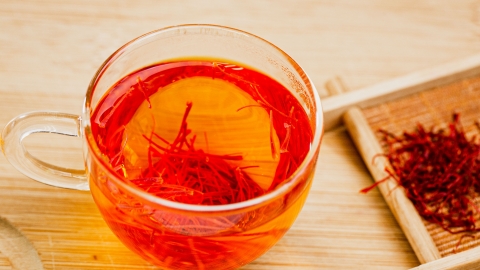What happens if you drink too much saffron?
Generally, although saffron has certain health benefits, excessive consumption can bring adverse effects to the body, mainly including gastrointestinal discomfort, increased risk of bleeding, neurological abnormalities, impaired liver function, and allergic reactions. The details are as follows:

1. Gastrointestinal Discomfort: Saffron has a certain stimulating effect on the gastrointestinal tract. Excessive consumption can intensify this irritation, possibly causing symptoms such as nausea, vomiting, abdominal pain, and diarrhea. Individuals with inherently weaker gastrointestinal function may experience more pronounced reactions.
2. Increased Risk of Bleeding: Saffron promotes blood circulation and helps remove blood stasis. Excessive intake may affect the body's coagulation function, increasing the risk of bleeding. This may manifest as gum bleeding, skin bruising, and for women during menstruation, it may lead to increased menstrual flow and prolonged menstrual periods.
3. Neurological Abnormalities: Excessive saffron components may stimulate the nervous system, causing symptoms such as dizziness, headache, and insomnia. Some individuals may also experience mood swings, such as irritability and anxiety.
4. Impaired Liver Function: Some components of saffron need to be metabolized by the liver. Excessive consumption can increase the liver's workload, and long-term excessive intake may damage liver cells, affecting the liver's normal metabolic and detoxification functions.
5. Allergic Reactions: A small number of people may be allergic to certain components in saffron. Excessive consumption increases the likelihood of allergic reactions, which may include symptoms such as skin itching, red rashes, and hives.
When consuming saffron regularly, the dosage should be strictly controlled, generally recommended at 1-3 grams per use, avoiding long-term excessive consumption. First-time users can start with a small amount and observe the body's reaction to ensure safety.






